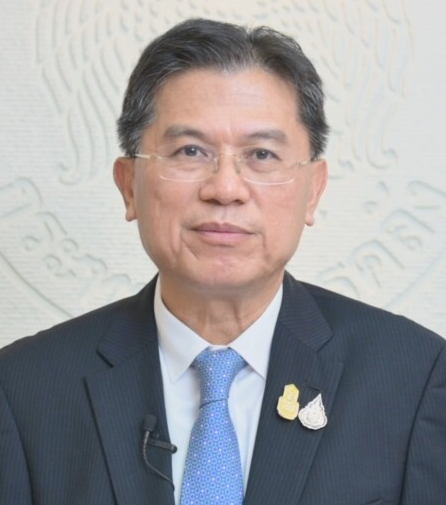
As part of its strategy to remain competitive in the post-Covid-19 world, Thailand will emphasize innovation as a long-term objective, and will pursue this agenda by harnessing both public and private-sector resources, the country’s new finance minister says.
In his first public appearance as finance minister, Predee Daochai says building competitiveness will be at the core the country’s economic strategy. “In order to increase our national competitiveness, the Ministry of Finance is putting emphasis on increasing investment spending on large-scale innovation with government agencies and state-owned enterprises,” Predee tells the virtual forum Thailand Focus 2020 organized by the Stock Exchange of Thailand (SET).
He is also banking on increased public-private partnership as a way to attract innovation without putting a fiscal strain on government budget. Some of the highlight projects Predee shared during his talk include those already part of the Thailand 4.0 under the previous economic management team led by Somkid Jatusripitak, the former deputy prime minister who quit in July 2020 together with former finance minister Uttama Savanayana such as the Eastern Economic Corridor and the Transport Infrastructure Masterplan. “These projects will be vital to Thailand’s future industries.”
Apart from infrastructure, Predee also mentions a 400 billion baht (US$12.8 billion) Economic and Social Rehabilitation Plan aimed at strengthening the local economy through job creation, building community tourism and investing in potential new economic corridors in preparation for future growth and industries including quality tourism. These are also part of the push to rekindle domestic consumption.
The finance minister believes the worst is behind the country even as he describes Covid-19 as “the most unbearable circumstances of our times”. In dealing with the crisis, he says policymakers must be forward-looking and view the situation with utmost attention. “Handling Covid-19 is tricky because no one can confirm when the vaccine will be approved. Until then, the global economy will likely remain below the pre-Covid-19 level. We must brace and prepare ourselves for any unforeseeable risk.”
Despite the negative effects of the virus on the economy, especially the lockdowns, which halted all foreign tourist arrivals into Thailand – and an important source of revenue for the country – he says the country’s economic fundamentals remain solid. “The economy is projected to bottom out in the second half of this year and will pick up in 2021 with 4% to 5% growth year-on-year.”
Speaking at the same virtual event, SET president Pakorn Peetathawatchai says Covid-19 shocked the world at all levels from countries to households. “During the first quarter of this year, the pandemic hit the Thai capital market resulting in the SET index to drop drastically in March and April 2020.”
Pakorn notes that from the first confirmed case of Covid-19 in Thailand on January 31, the index dropped by 37% and rebounded to almost pre-crisis level in early June. “Strong recoveries are in consumer products, and agro and food industries that are now [trading] at a higher level than pre-Covid.”
Overall, however, data from SET shows that listed companies posted a combined net profit decline of 58.7%, to just under 188 billion baht. Total sales were down 13.3% to 5 trillion baht. Gross profit margin weakened to 20.5% from 21.3%, while core profit margin was at 5.4% from 8.4% and net profit margin slumped to 3.7% from 7.8%.
Green shoots are emerging, however. Pakorn points out that initial public offerings that have been postponed are now starting to re-enter the market. “Despite the interruption caused by the pandemic, nearly US$3 billion has already been raised, which is comparable to the level of the previous years. Another 30 securities are waiting in the pipeline.”
With the government’s economic support measures in place, and with the outbreak under control, local investors have become active. “Retail investors’ participation has propelled the average daily trading volume to more than US$2 billion. About 190,000 new retail trading accounts were opened during the first half of this year, which is 34% more than in 2019,” he notes.









